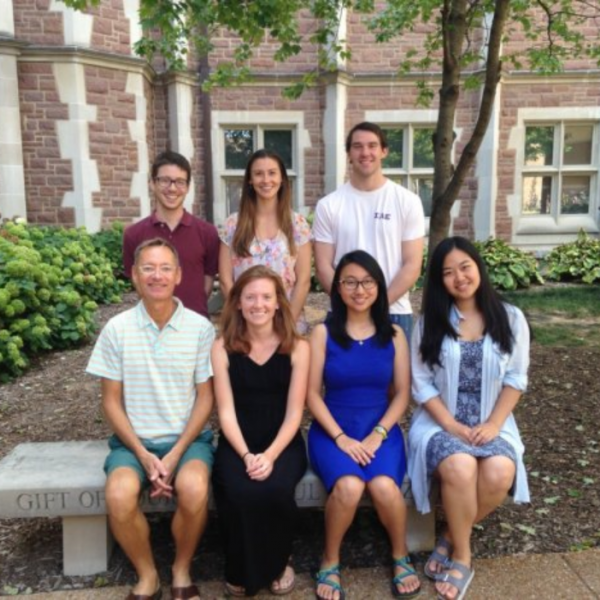Clinical Geropsychology Lab - Brian Carpenter
Our research concentrates on older adults and the people who interact with them, such as their family members and their healthcare professionals. We apply a variety of theoretical frameworks and research methods to understand how individuals and families address challenges and opportunities related to growing older. Throughout, our research is designed to have applied, practical implications. That is, the ultimate goal of the research is not only to extend scientific knowledge, but also to improve the real quality of life for older adults.
Current Research Projects
Enhancing Communication in Later Life Families
Families are reluctant to talk about aging issues and to plan for elder care. They have little experience having these kinds of conversations, and they often wait until there is a crisis in the family to talk about life preferences. In this project we are developing and evaluating a web-based family education tool to help families 1) become more knowledgeable about parent care preferences, and 2) develop effective communication skills. (Supported by a grant from The Fridolin Charitable Trust)
Risk Communication for Preclinical Alzheimer’s Disease
Recent research has aimed to improve detection of Alzheimer's Disease (AD) in advance of symptoms ("preclinical AD"). However, little is known about how to best communicate risk for AD to patients and how to minimize harm resulting from disclosure of disease information. The current study will compare three methods of educating patients about preclinical AD and examine reactions to a hypothetical disclosure of different risk levels for preclinical AD.
Longitudinal Impact of Receiving a Dementia Diagnosis
Receiving a dementia diagnosis is an emotional, life changing event. In this project we are examining the psychological and social impact of receiving a dementia diagnosis, among patients and their family caregivers. This longitudinal study, conducted at the Washington University Alzheimer's Disease Research Center, follows research participants prior to their diagnostic evaluation and for one year after they have received diagnostic information. The study also includes the analysis of videotaped patient-physician interactions, examining verbal and nonverbal features of the conversation and their association with patient and companion outcomes. (Supported by the University of Missouri Advisory Board of the Alzheimer's Disease and Related Disorders Research Program and the National Institute on Aging (5 R03 AG033860-02))
Palliative Care Consultation Trajectories
This study, conducted at the St. Louis Veterans Affairs Medical Center, examines the performance of a palliative care consultation team (PCCT). We are examining the timing of when the PCCT is brought in to offer input in the care of patients with serious illness, what recommendations the PCCT makes, and what factors are related to whether and how those recommendations are put into effect. The ultimate goal of this research is to increase the effectiveness of the palliative care team in providing high-quality care to patients with life-limiting illness.
Using an Online Tool to Screen for Risk of Dementia
This study examines the impact of an online computer module developed by collaborators at Johns Hopkins University. We are investigating whether this online tool communicates dementia risk in an accessible and easy to understand format. We are also investigating whether using this tool alters attitudes and behaviors related to dementia.

